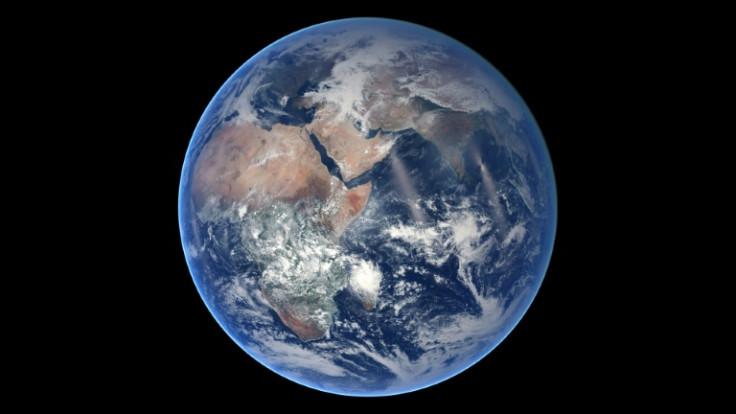Groundwater Extraction Has Shifted Earth's Axis
This is the first time that a study has found the impact of groundwater extraction on the earth's axis.

A recent study has revealed that rapid groundwater extraction over the years has had an impact on the earth's axis.
The study published in Geophysical Research Letters claimed that groundwater extraction led to the earth's axis tilting nearly 80 cm east. Between 1993 and 2010, nearly 2,150 billion tonnes of groundwater was removed and drained into the oceans, which has also resulted in global sea-level rise.
Earlier, several studies had claimed that global warming is changing the way the earth turns on its axis.
A study published in 2016 revealed that the North Pole is gradually shifting towards the UK. Scientists believe it is being caused by a shift in the distribution of water across the planet and the continued melting of polar ice.
It needs to be understood that the earth spins around an imaginary axis that passes through the north and south poles. The poles and the axis keep shifting naturally due to the dynamic changes that occur within the earth and on its surface.
The earth rotates along a point called its rotational pole. This point lies on the axis of rotation of the planet and moves in a process called polar motion. Polar motion is the motion of earth's axis of rotation with respect to its mantle and crust.
It doesn't orbit upright, but is instead tilted on its axis – meaning earth's northern and southern hemispheres trade places in receiving the sun's light and warmth most directly. The tilt of the earth is what causes winter and summer. Therefore, any changes in its tilt can have irreversible consequences for humans.
Several studies over the years have shown that the motion of the pole is complex, and factors such as weather, seasonal changes, the molten core, and hurricanes all have an impact on this motion.
And this is the first time that a study has found the impact of groundwater extraction on the earth's axis.
The study was conducted by a group of scientists at the Seoul National University led by Professor Ki-Weon Seo.
"Earth's rotational pole actually changes a lot. Our study shows that among climate-related causes, the redistribution of groundwater actually has the largest impact on the drift of the rotational pole," said Ki-Weon Seo of National University, one of the co-leads on the study.
"I'm very glad to find the unexplained cause of the rotation pole drift," he added. "On the other hand, as a resident of earth and a father, I'm concerned and surprised to see that pumping groundwater is another source of sea-level rise."
In 2021, a study claimed that the North Pole shifted eastward in 1995. The drift observed between 1995 and 2020 is nearly 17 times faster than it was during 1981–1995.
© Copyright IBTimes 2024. All rights reserved.






